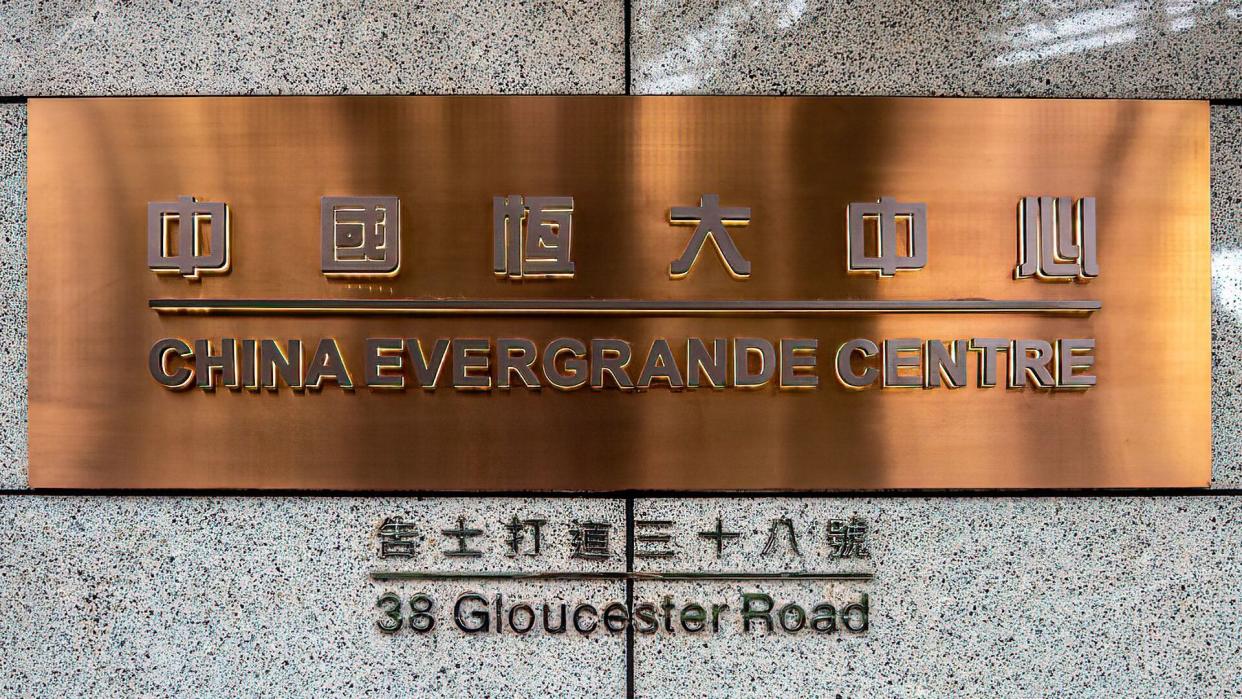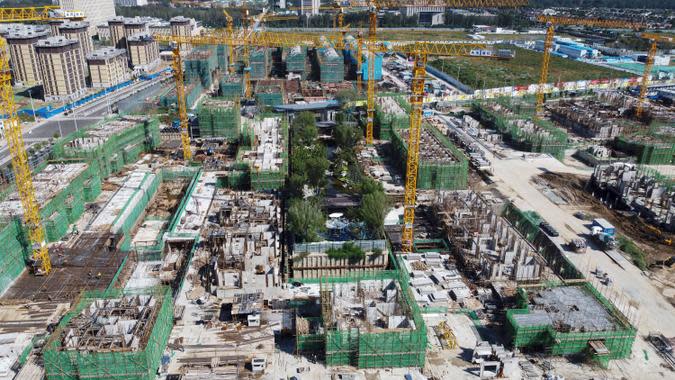Why Everyone is Talking About Evergrande: The Chinese Giant Driving Global Selloff Fears

China Evergrande, the Chinese property developer, might have not been widely known to global investors a few weeks ago, but has quickly become a household name as its debt issues are having worldwide ripple effects. The group, which holds about $300 billion worth of debt, is on the verge of defaulting on an $83.5 million interest payment on U.S. dollar bonds. According to CNN, it is not yet known whether a payment will be made.
See: What Is the VIX Index, aka Wall Street’s ‘Fear Gauge’?
Find: Comparing Investments: Real Estate vs. Crypto vs. Gold
As of now, the Chinese government is unlikely to step in, according to several reports.
“We do not expect the government to provide any direct support to Evergrande,” S&P credit analysts said in a note this week. “We believe Beijing would only be compelled to step in if there is a far-reaching contagion causing multiple major developers to fail and posing systemic risks to the economy.”
In the U.S., investors’ concerns sent the markets tumbling this week, with both the S&P 500 and the Nasdaq having their worst performances since May on Monday. Today, the market is rallying after partially correcting for Evergrande and in response to yesterday’s Federal Reserve’s statements.
Evergrande, which has a debt burden greater than any other publicly traded real-estate management or development company in the world, is widely held by Chinese financial institutions, retail investors, home buyers and its suppliers in construction, materials and design industries, CNN reports, adding that foreign investors also hold some of its debt.

The group, which was founded in 1996, has been scrambling to pay its suppliers and has even warned investors twice in recent weeks that a default is likely in the near future. In an announcement last week, Evergrande stated its property sales will likely continue to decrease in September, following consecutive months of decline and “thereby resulting in the continuous deterioration of cash collection by the Group which would in turn place tremendous pressure on the Group’s cash flow and liquidity.”
Evergrande has engaged Houlihan Lokey (China) and Admiralty Harbour Capital Limited as joint financial advisers “to assess the Group’s capital structure, evaluate the liquidity of the Group and explore all feasible solutions to ease the current liquidity issue and reach an optimal solution for all stakeholders as soon as possible,” according to the announcement.
Today, The Wall Street Journal reports that Chinese authorities are asking local governments to prepare for the potential downfall of the company and are bracing for any economic and social fallout from the company’s travails.
The officials characterized the actions being ordered as “getting ready for the possible storm,” saying that local-level government agencies and state-owned enterprises have been instructed to step in to handle the aftermath only at the last minute should Evergrande fail to manage its affairs in an orderly fashion, according to the WSJ.
S&P Global Ratings analysts said in their report that if the company were to default, the fallout will lie somewhere in between “a tidal wave of defaults swamping the credit markets” and “ripples from a pebble in a pond.”
While Evergrande’s woes have been compared to Lehman Brothers, not everyone agrees and some experts say it’s too soon to tell.
Peter Cohan, a lecturer at Babson College and author of “Goliath Strikes Back,” tells GOBankingRates that on the surface, the bankruptcy of Evergrande does not appear likely to have the global impact of the bankruptcy of Lehman Brothers.
“However, it all depends on how interconnected Evergrande’s lenders and other stakeholders are with the rest of the global financial system,” Cohan adds. “If the damage is limited to the regions in China where Evergrande operates, its bankruptcy will not make it the next Lehman Brothers.
“But I am worried about the unknown repercussions that will not come to light until later.”
If the company defaults, it’ll be one of the largest failures in history. To put this in perspective, Argentina’s 2001 foreign debt default totaled $93 billion, Greece’s 2012 restructuring was $200 billion and of course, Lehman Brothers when it filed for bankruptcy, had $600 billion, according to a tweet by Ian Bremmer, founder of political risk research and consulting firm Eurasia Group.
See: Bitcoin Plunges 10% as Investors Wane Amid Intense Regulatory Pressure and Global Market Concerns
Find: Recessions Explained: Definition, Warning Signs and What Happens During One
Jay Hatfield, founder and portfolio manager of Infrastructure Capital Advisors, tells GOBankingRates that the potential for Evergrande to default increases the potential for the Chinese economy to slow down in 2022. In turn, he says, “a slowdown in China would increase the likelihood of a recession in the U.S. in 2022 as headwinds from tax increases and lack of stimulus payments will be major headwinds for the U.S. economy.”
Hatfield adds that as China is the largest importer of oil and iron ore in the world, “any slowdown of growth in China will reduce demand for those commodities.”
More From GOBankingRates
Fourth Stimulus Checks Are Coming From These States — Is Yours on the List?
Social Security Benefits Might Get Cut Early — What Does It Mean for You?
When Social Security Runs Out: What the Program Will Look Like in 2035
This article originally appeared on GOBankingRates.com: Why Everyone is Talking About Evergrande: The Chinese Giant Driving Global Selloff Fears
